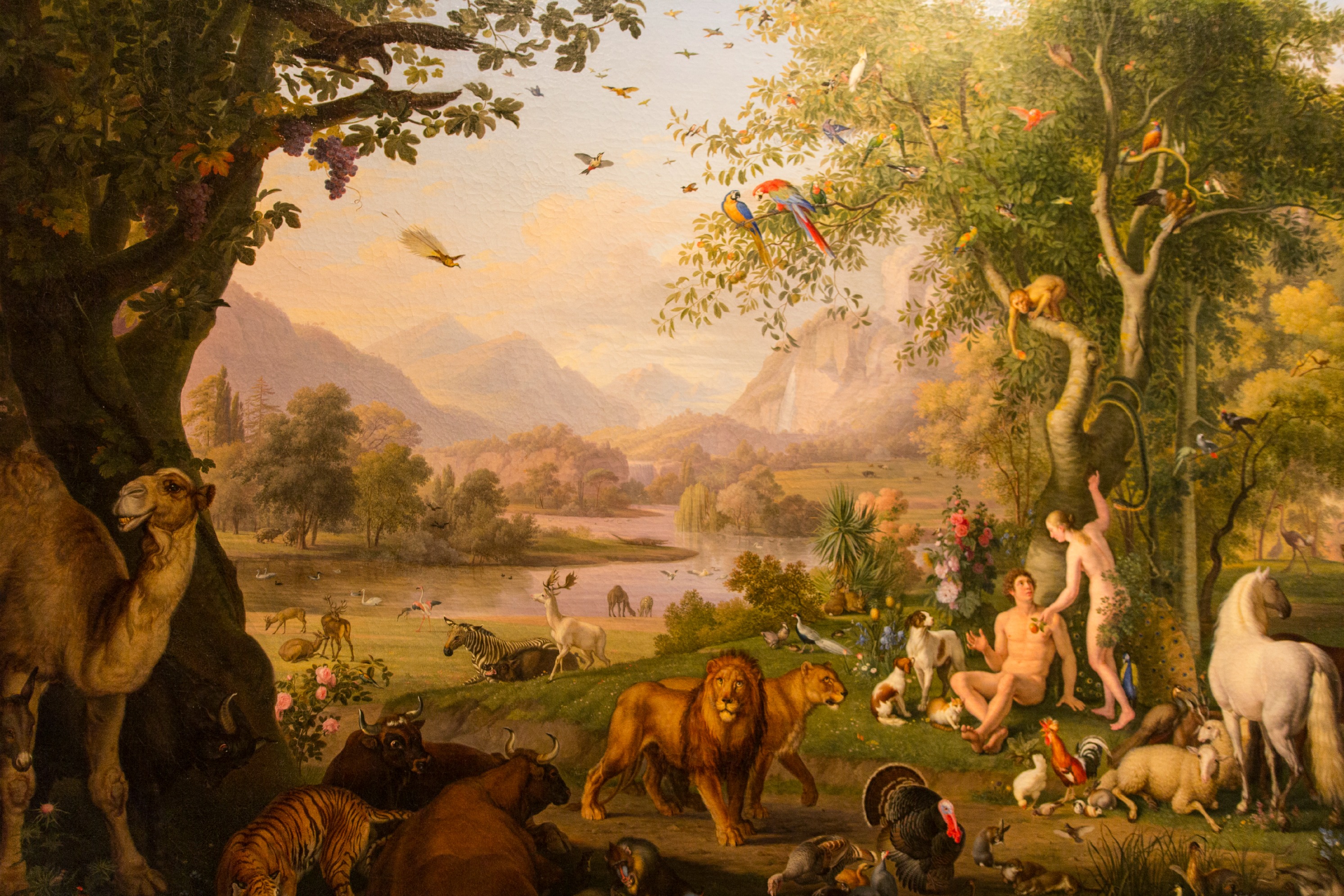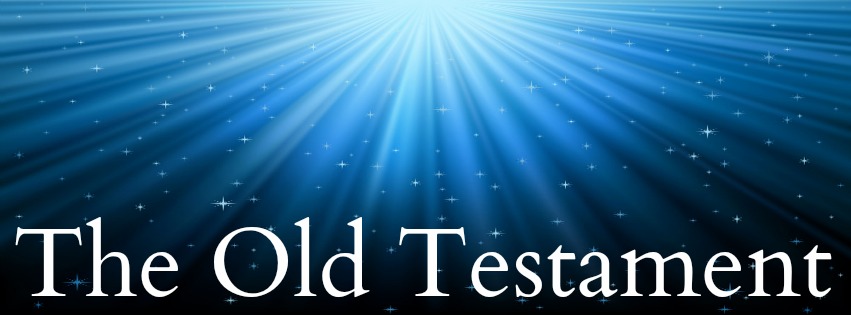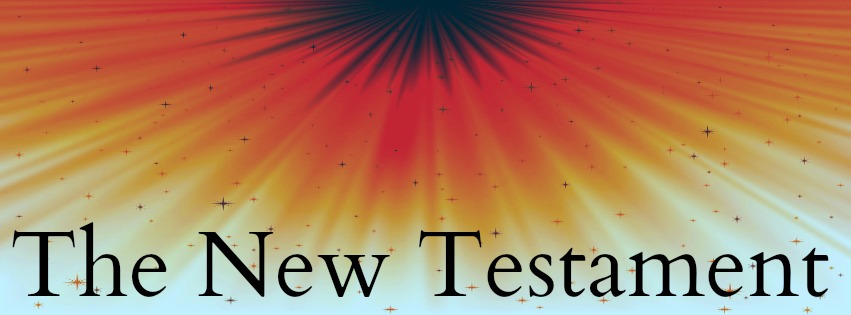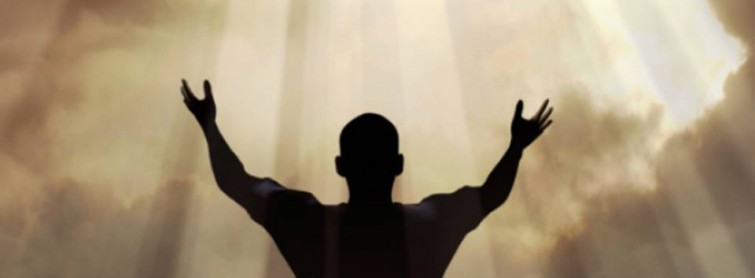In recent years a movement has developed that explores the idea of Christianity as originally designed to be vegetarian. Authors who examine this idea encourage Christians to adopt a vegetarian diet and often claim that scripture itself demands it. Some people have even attributed the long lifespans seen in the early bible to the vegetarian diet prescribed by God.
What does the Bible really say about vegetarianism?
The Original Design
According to Genesis 1, at the end of the week, when God had finished his creation, he told Adam and Eve to eat plants.
“Then God said, “Behold, I have given you every plant yielding seed that is on the surface of all the earth, and every tree which has fruit yielding seed; it shall be food for you; and to every beast of the earth and to every bird of the sky and to everything that moves on the earth which has life, I have given every green plant for food”; and it was so.”
This directive suggests sufficiency in the finished creation. Human and animal life was able to consume freely from plant life, because God has supplied abundance as part of the original design.
Shortly after God created the perfect earth, He laid down the vegetarian mandate because death did not exist – it was not a part of the original creation design. Animals and humans were designed to live forever, and therefore could not survive by eating meat because ‘meat’ did not exist. There were only living things.
In Genesis 3, sin entered the world, and so did death. The creation was no longer perfect but was fractured and unable to function according to its original design. The paradisal state that prevailed in Genesis 1 and 2 was ruptured, ushering in a new age of death, cruelty and carnivory that was not intended as part of the original design.
As a result, animals began to eat other animals.
Cain and Abel
One question often asked when this issue is explored, is whether or not Abel was a meat eater. This is assumed since Cain was a produce farmer and kept vegetables but Abel is depicted as a shepherd who sacrificed his animals.
This alleged contradiction comes from assuming Abel was doing something that Scripture doesn’t say he was. The relevant passages are:
“Now Abel was a keeper of sheep, but Cain was a tiller of the ground. And in the process of time it came to pass that Cain brought an offering of the fruit of the ground to the Lord. Abel also brought of the firstborn of his flock and of their fat.”
Abel’s intentions for tending flocks were probably not for meat. His flock could have been raised for the various other goods that lambs can yield – wool, milk, leather and for sacrifice.
Those who assume Abel was a meat eater are assuming that after the sacrifice, Abel was eating the meat. Since we know that God commanded all human beings to eat only plants, and directed this at Abel’s parents, it seems likely that he would be familiar with God’s intentions for humanity.
Matthew 23:35 indicates that Abel was considered a righteous man, and we know from Genesis 4 that God favored Abel’s offering over Cain’s. This would be unlikely if after the offering Abel was doing something that would displease God. We must assume that Abel would not choose to be so blatantly disobedient, and that given the glowing reports that Abel is given later in scripture, he was not going against God’s directive from Genesis 1.
If Abel did not eat meat, which scripture certainly doesn’t indicate, then there is no contradiction.
The Changed Design
In Genesis 9, God establishes a new covenant, and offers a new directive;
“Every moving thing that is alive shall be food for you; I give all to you, as I gave the green plant.”
The state of humanity in Genesis 6 prompted God to take action. Human corruption had once again shattered the original design, distorting God’s plans for humanity. He was forced to take action.
After the flood, God’s directive regarding the human diet was altered. Noah and his family were given permission to eat meat. Although people may have sinfully eaten meat during the pre-flood time of immorality and depravity, they were not given permission to do so. Genesis 9 is the first time that God gave permission for humans to eat animals.
The presence of this permission further reinforces the directive given in Genesis 1. Human life was not intended to eat meat – it was not a part of God’s original design. Here, in the midst of a post-flood world, and at the defining moment of a fresh start, God allows meat-eating to take place.
With some arguing that long lifespans were a direct result of the vegetarian diet in the pre-flood world, it has also been further suggested that the sharp decline in the length of life after the flood can be attributed to the introduction of meat into the human diet.
Since the directive in Genesis 1 suggests a sufficiency, it could be argued that God’s permission in Genesis 9 is due to an insufficiency. After the flood, there wouldn’t have been an abundance of plants as there was in Eden. God may have felt that he needed to incorporate meat into the human diet for survival. It’s also worth noting that at the fall, God’s original design was permanently damaged, leaving a scarcity. In Genesis 3 God says to Adam;
“…cursed is the ground because of you; in toil you shall eat of it all the days of your life; thorns and thistles it shall bring forth for you…”
In a time of vegetation shortage, God made a concession.
So is a Vegetarian Diet Mandatory?
In the modern age, people have struggled to come to terms with the fact that God’s original design did not include meat eating. Scientists have attempted to explain it away by claiming that certain animals cannot survive without meat, and even theologians have argued that God’s statements are a generalisation with a theological agenda: we are all fed by God, one way or another. However, the command issued directly from God was clear: eating meat was not a part of the finished creation. We must take God at His word and accept that created creatures were intended to eat only plants.
God’s permission given in Genesis 9 allowed humanity to eat meat, but we should not regard this permission as a rescinding of the original mandate, or perceive God to have conceded in any way. However, this permission was given to a family who were starting a new life amongst scarce natural resources.
When we come to the Gospels, Jesus’ life is an indication that a vegetarian diet is not mandatory. Jesus caught fish with his disciples (presumably knowing those fish would be eaten), ate lamb, ate fish, cooked it for his disciples and used it to feed 5000 men.
So if it’s good enough for the savior of the earth, then it’s good enough for us…right?
Not necessarily. Jesus acknowledged and lived out of the permission given in Genesis 9, but ate meat sparingly, and often in religious contexts such as Passover. We should not regard this permission as a free pass to kill for eating pleasure. Just because we have been given permission does not mean we have to, unless you are suffering shortage.
However, decisions regarding personal diet choices in modern life involve many factors including health, doctor’s advice and personal conviction. The best choice for one person is not necessarily the best choice for another, and choosing to live a vegetarian diet should not become a test of orthodoxy for any Christian.
We must also remember that any issue that distracts from the Gospel message is probably not worth getting too troubled by.
The Future
“The cow will feed with the bear, their young will lie down together, and the lion will eat straw like the ox”
“The wolf and the lamb will feed together, and the lion will eat straw like the ox, and dust will be the serpent’s food. They will neither harm nor destroy on all my holy mountain”
Isaiah makes it clear that for animals, at least, the primeval decree shall prevail: vegetarianism will reign in the new creation. Christ’s second coming will usher in a reinstatement of the original design established in Eden, and will restore the intentions that God had at the beginning.
So today – eat, drink and be merry, for whether we like it or not…eventually…..we may ALL be vegetarians.
To honour God’s creation, be sure to sign the petition to establish Creation Day as an official holiday!





